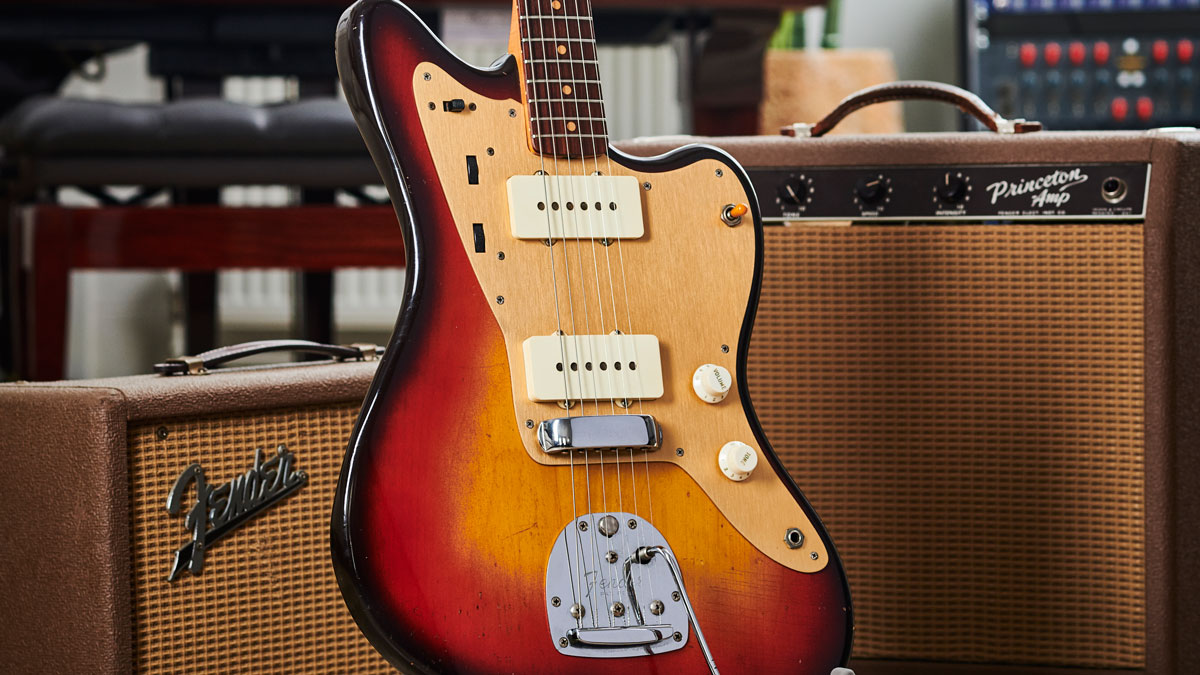
Love ’em or loathe ’em, Fender offset guitars have some challenging quirks and most of these are related to the bridge and vibrato. While the system can work superbly, some knowledge is required to achieve that.
This applies whether you have a vintage example, a Japanese reissue or even a Squier. And there are plenty of upgrades and modifications to take your offset to the next level.
1. Neck angle
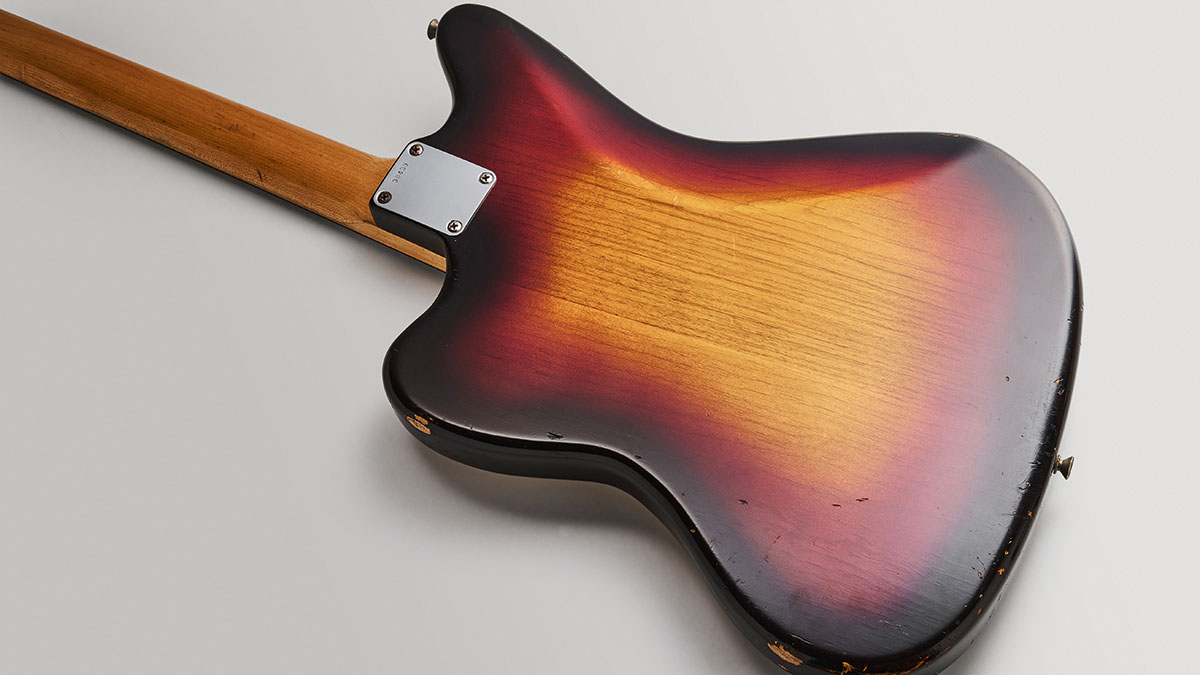
Jazzmaster and Jaguar strings pass over the bridge saddles with very little break angle between the bridge and the vibrato plate. This minimises friction, but with lighter strings and low action, strings can pop out of their saddle slots and noises often occur behind the bridge. You may also notice a tonal characteristic that’s softer and less sustaining than other Fender models.
Many offset fans consider indistinct tone and extraneous noises part of the charm, but if that’s not for you, try shimming the neck
Many offset fans consider indistinct tone and extraneous noises part of the charm, but if that’s not for you, try shimming the neck. You can place a small piece of hardwood veneer in the neck pocket, but it’s preferable to use a tapered maple shim that doesn’t leave gaps between the neck and body.
Google ‘guitar neck shims’ and you’ll see many come in packs of three with 0.25, 0.5 and 1 degree increments; these can be used individually or combined. A shimmed neck requires a higher set bridge, which steepens the break angle, minimises unwanted noises and, hopefully, secures the strings in their saddle slots.
Alternatively, the Buzz Stop is a roller bar that mounts on top of the vibrato plate and increases the break angle over the saddles. It’s similar to the front roller on a Bigsby B7, but we’d suggest that you read some reviews before going ahead and buying.
2. Glide guitar setup tricks
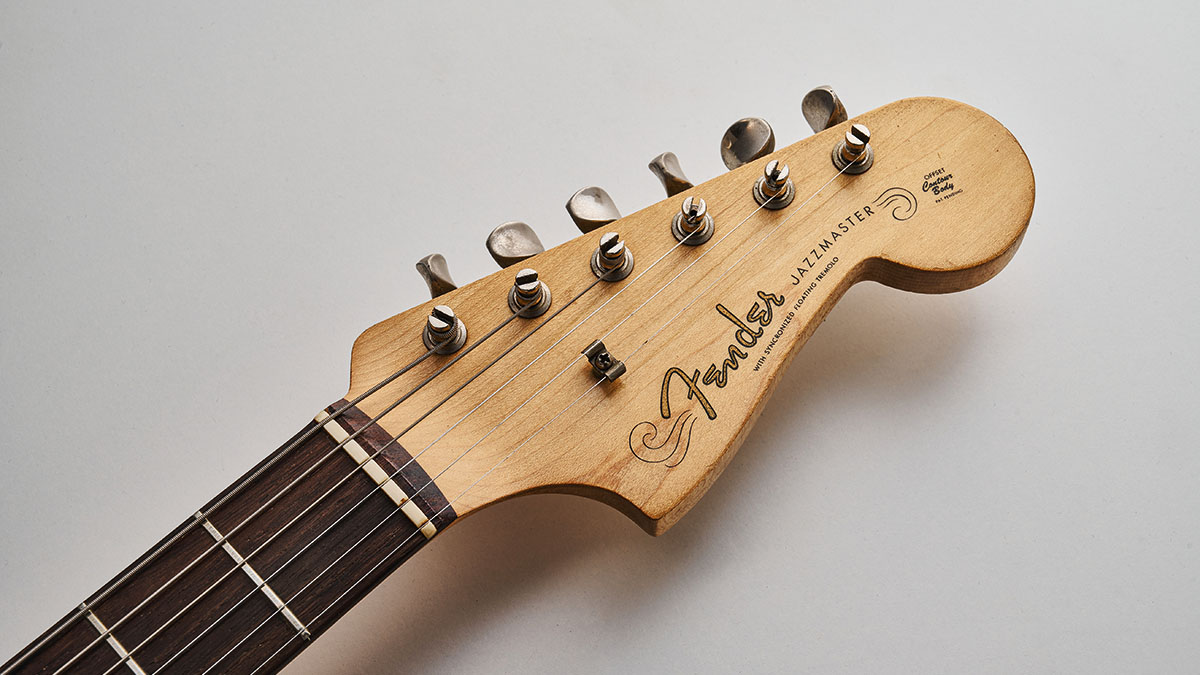
Friction is the enemy of stable tuning and keeping things running smoothly is imperative with vibrato-equipped guitars. Start at the nut and if you hear any pinging noises when tuning, those slots need filing and finessing. That may be a job for your luthier, but anybody can lubricate a nut.
You can use petroleum jelly, soft wax, lip balm, silicon grease or graphite from a soft pencil. Graphite powder works well (although it can get messy) and there are guitar-specific products such as Big Bends Nut Sauce. While you’re at it, try lubing the saddles and undersides of any string trees.
3. The hammer trick
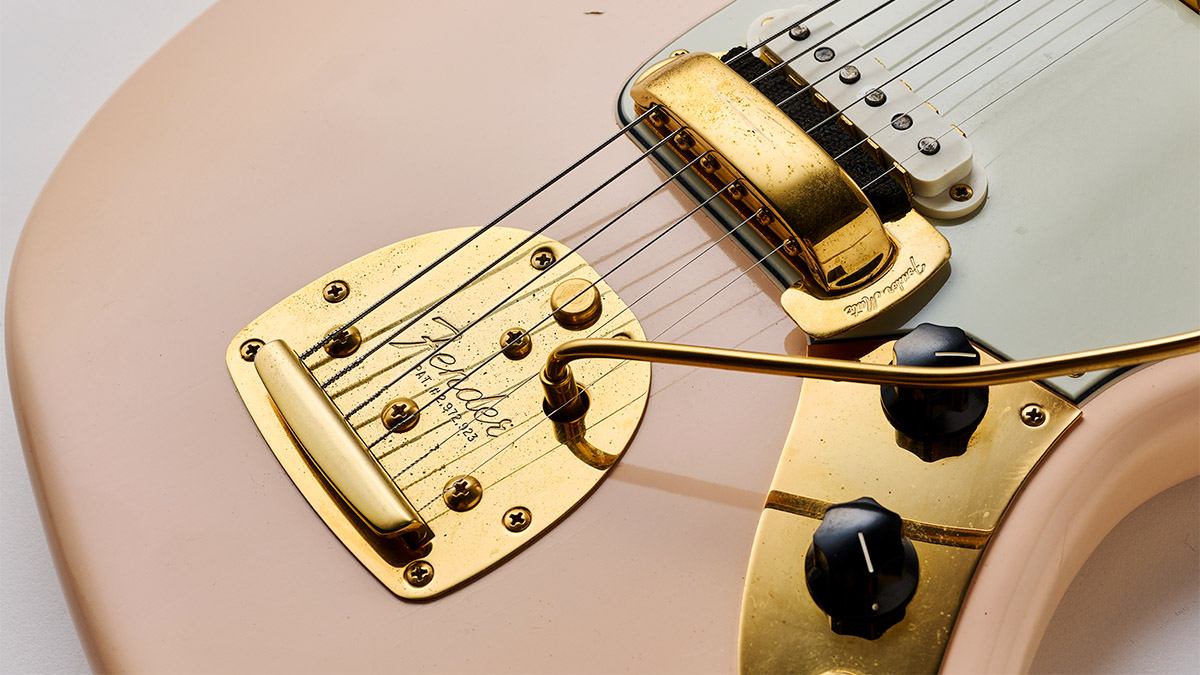
Offset arms can get loose over time and the ‘hammer trick’ is a widely accepted fix for optimising the fit. Grip the arm firmly in a vice, leaving about 25mm or so clear of the jaws, and give it one moderately firm tap with a hammer. The object is to introduce a barely perceptible bend that will tighten the fit in the collet.
Repeat the procedure if the arm still feels loose, and continue until you achieve the desired feel. If it gets too snug, pop the arm back in the vice and tap it in the opposite direction. If you don’t fancy this, check out the Staytrem arm and collet set.
Don’t confuse an overly swingable arm with a loose arm housing. If the arm is rattling about, you need to remove your strings, take the vibrato assembly out of the body and tighten the nut that secures the arm housing to the plate.
4. Electronic upgrades

Besides the obvious stock pickup upgrades, check out companies such as Mojo Pickups, The Creamery and Monty’s for drop-in P-90, Gold Foil, humbucker and high-output alternatives.
Asian-manufactured guitars may benefit from upgraded potentiometers and switches, but such is the complexity, we’d suggest a pre-wired assembly.
Pre-formed brass inserts can be installed to beef up the shielding, or you can also use sticky-back copper foil in the cavities and under the pickguard. With plastic pickguards, we’d prefer a vintage-spec aluminium shield, but they’re unnecessary if you have an anodised pickguard.
With so many switches and controls onboard, Jazzmaster and Jaguar wiring can be reconfigured in many ways without irreversibly altering the appearance. Jaguar switches can be changed to a slider or toggle, or repurposed for series/parallel or polarity switching.
And if you never use the rhythm circuit, you can bypass it altogether or convert to Les Paul wiring with individual volume and tone controls for each pickup.
5. Bridge mods
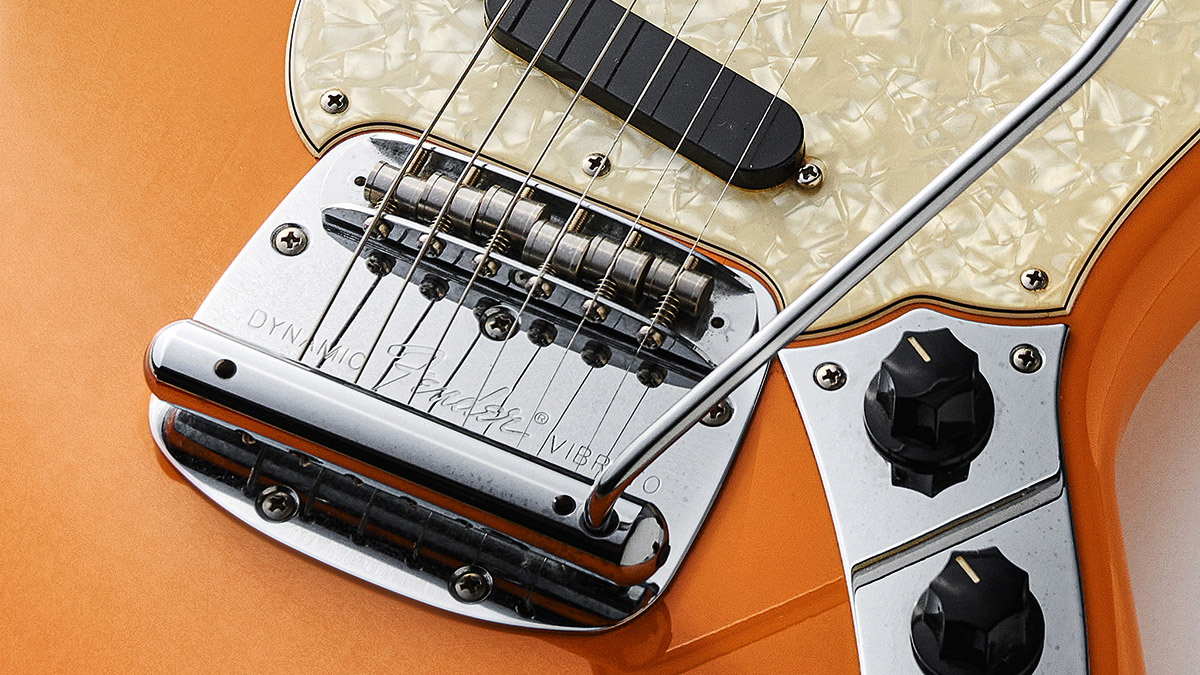
Vintage-style Jazzmaster and Jaguar saddles are made from threaded steel rod, and strings often come out of their slots. Consequently, a lot of offset upgrades focus on the bridge, and players have been installing Mustang saddles and bridges onto Jazzmasters and Jaguars for decades.
Graph Tech saddles are another option and promise more stable tuning. Some opt to upgrade the entire bridge, and while the Staytrem looks like a Mustang it has nylon inserts for the saddle screws to eliminate rattles and is available in 7.25-inch and 9.5-inch radiuses.
Elsewhere, the skeletal-looking Mastery bridge is machined from stainless steel and adjustable in every direction. It keeps strings in place and promises to improve sustain and tuning stability. Not one for the purists, but ideal if you want an oddity-free offset.






